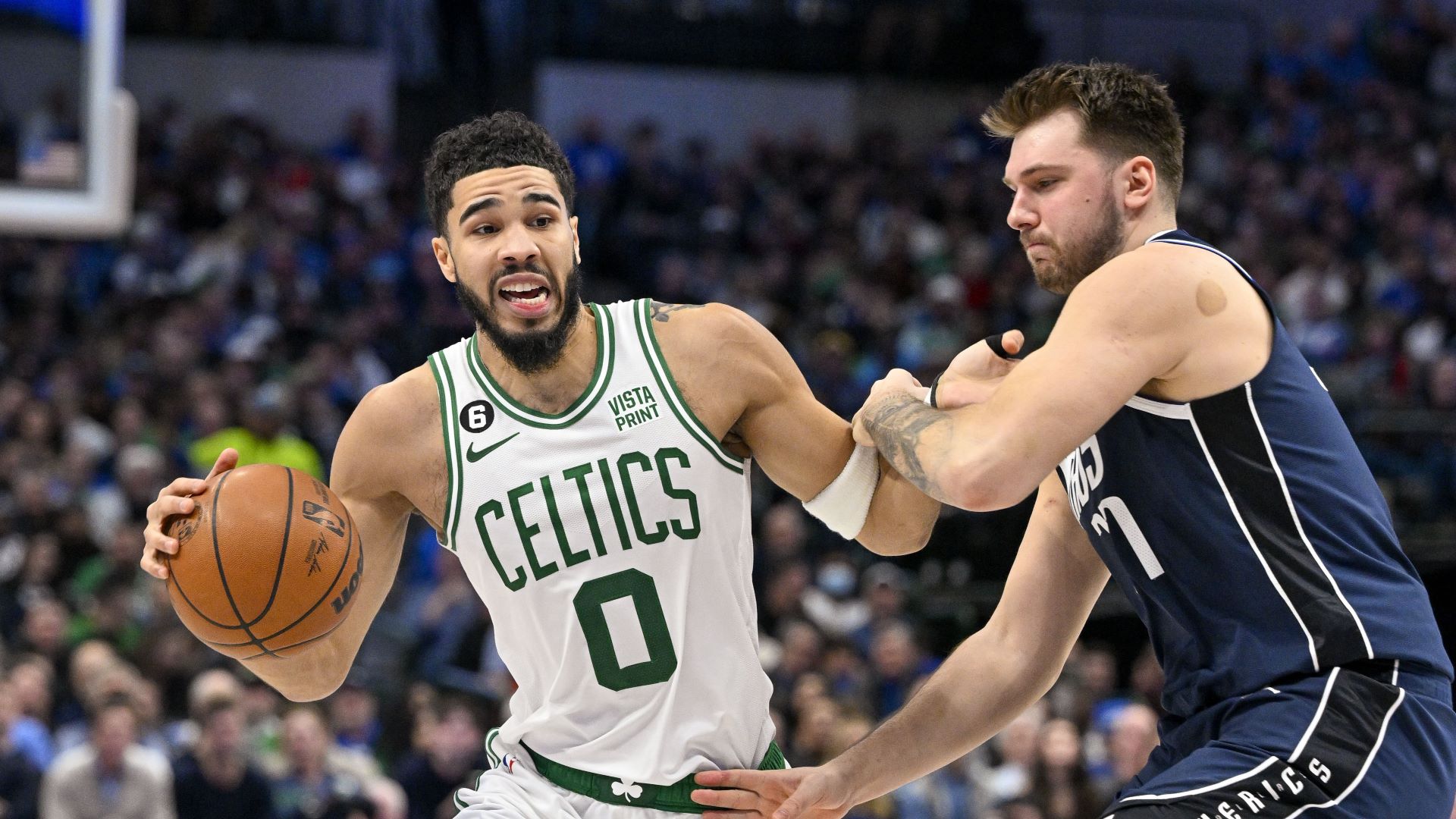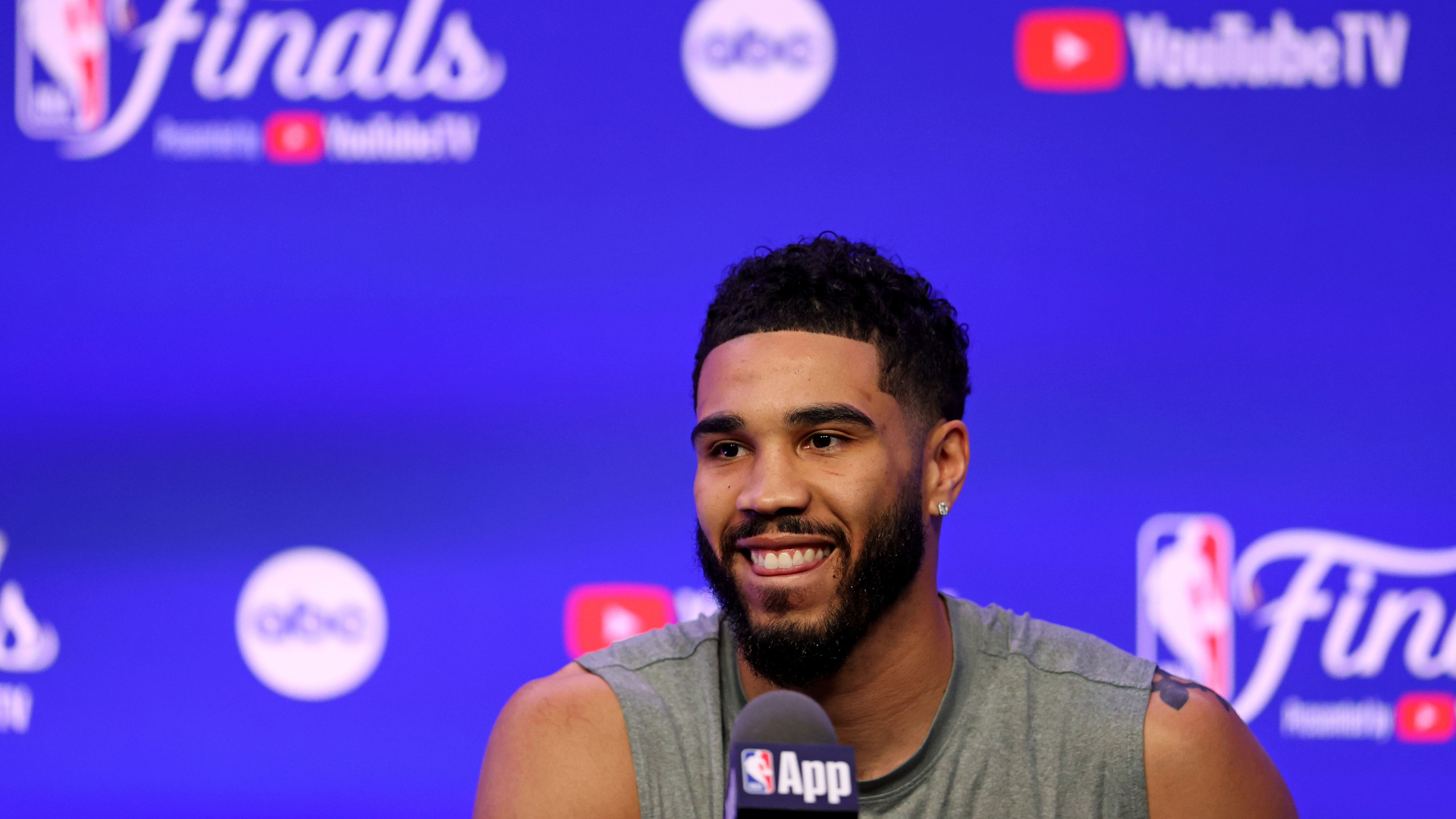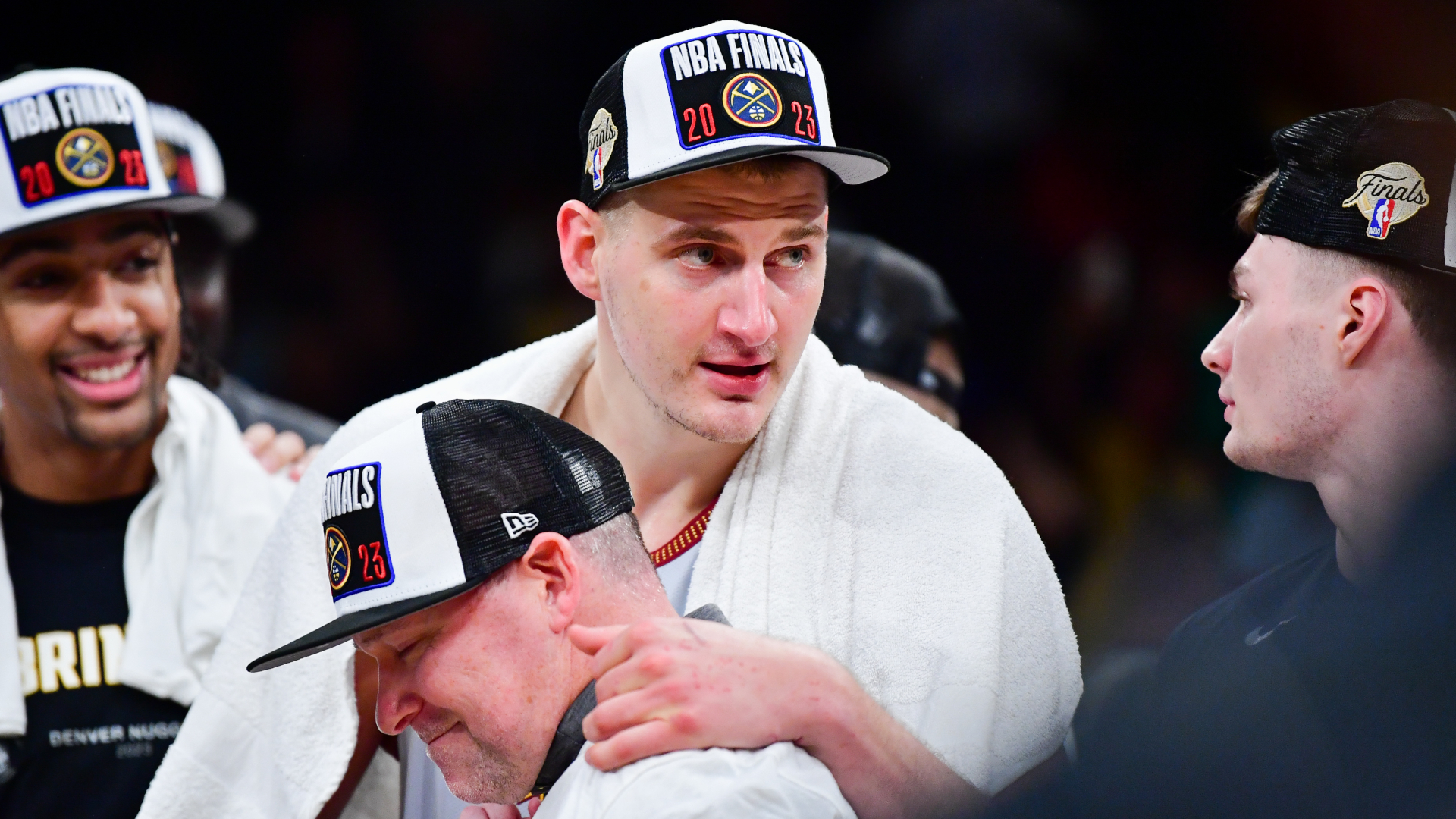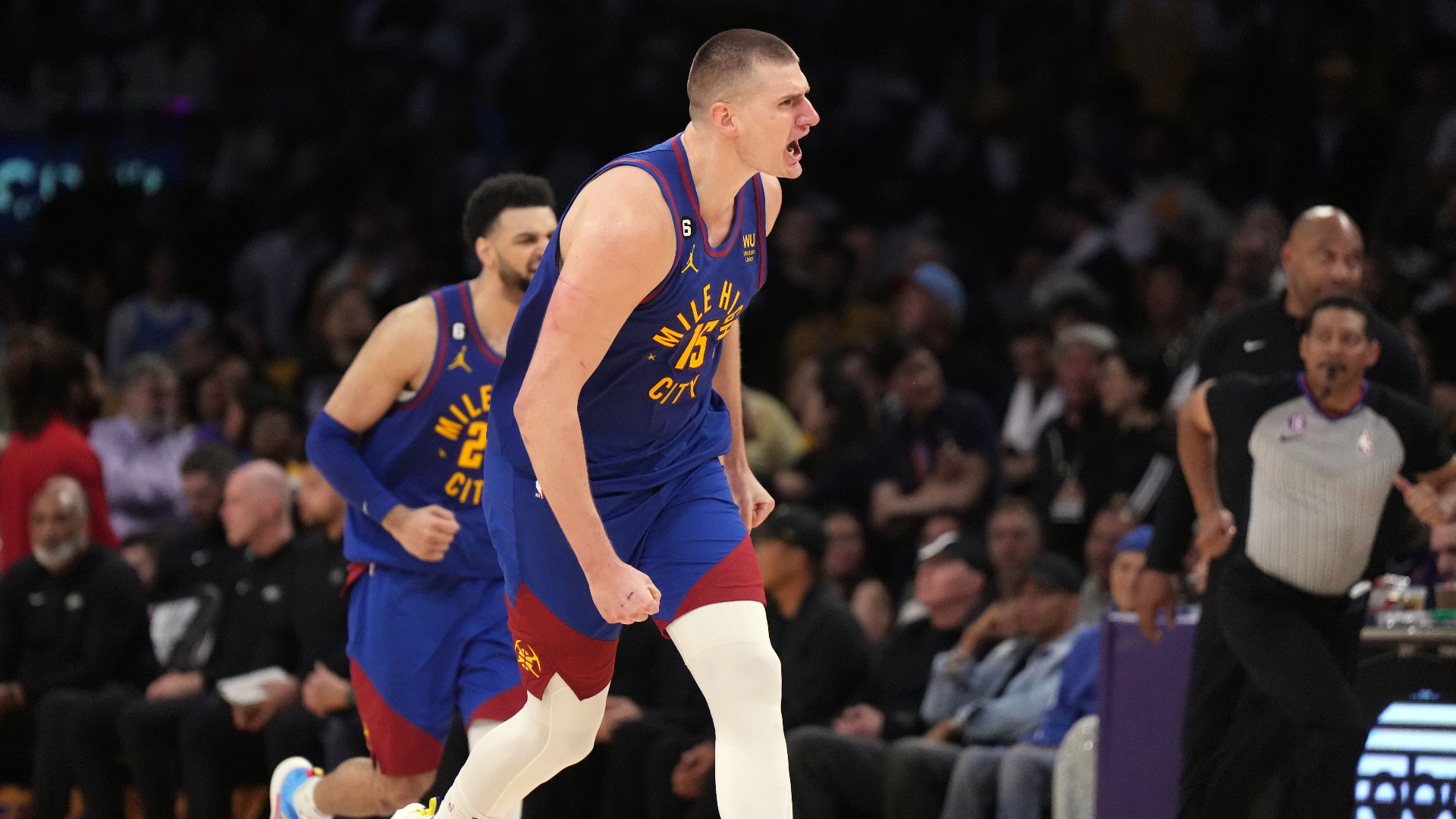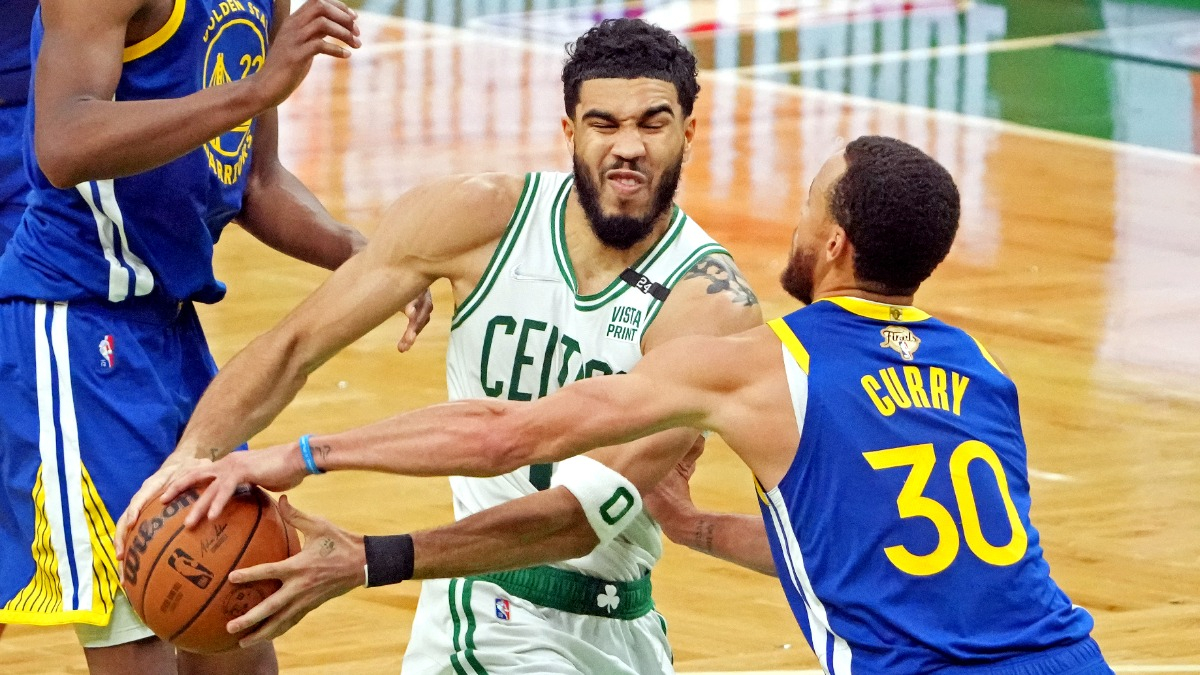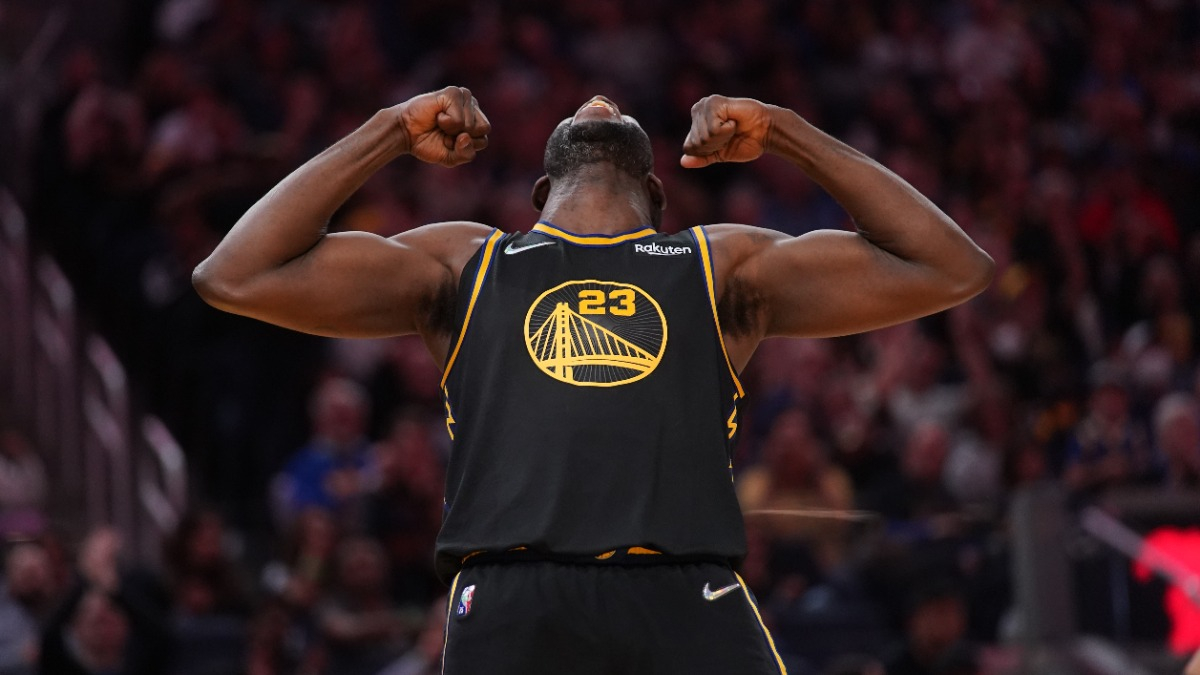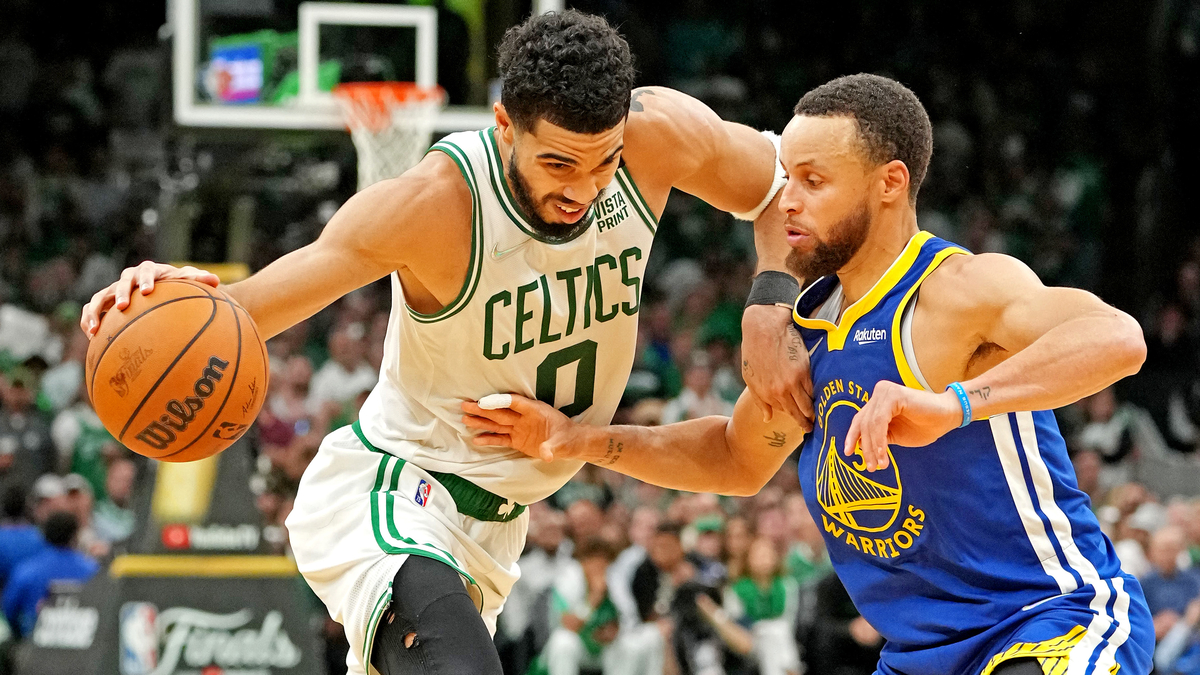Everything seemed to fall into place when the Boston Celtics acquired Kyrie Irving before the 2017-18 season.
Irving, a multi-time All-Star and NBA champion with the Cleveland Cavaliers joined a roster that included both proven veterans (i.e. Al Horford and Gordon Hayward) and talented up-and-comers (i.e. Marcus Smart, Jaylen Brown and Jayson Tatum). It looked like then-Celtics president of basketball operations Danny Ainge was building something with staying power as Boston sought its first title since 2008.
The honeymoon phase didn't last long, though. Irving packed his bags after a tumultuous two-year tenure in Boston -- despite previously stating his intention to sign a long-term contract extension with the Celtics -- and joined the Brooklyn Nets in free agency.
That, in and of itself, could've crushed the Celtics' long-term outlook, especially with Horford also leaving Boston that offseason to sign with the Philadelphia 76ers.
Story continues below advertisement
But it didn't.
Instead, the Celtics stayed on the tracks, with a new formula that revolved around Tatum and Brown as the franchise pillars.
More NBA Finals
It hasn't always been pretty -- like Boston's 36-36 campaign in 2020-21 or the Ime Udoka scandal that culminated with his departure just one year after he became head coach when Brad Stevens moved upstairs to assume Ainge's former role -- and there were moments when some debated whether the Celtics should break up the Tatum-Brown tandem. By and large, it's a borderline miracle the Celtics didn't totally crash and burn, let alone maintain a mostly upward trajectory en route to facing the Dallas Mavericks in the 2024 NBA Finals.
Story continues below advertisement
Essentially, the Celtics survived the Kyrie Irving experience -- and now have a chance for revenge on basketball's biggest stage.
"You know what made (Irving's) departure especially villainous, for lack of a better word? He threatened to disrupt what otherwise looked like a very viable, sustainable window of success," NESN's Ricky Doyle said on this week's episode of "The Spread" podcast. "He left, and that entire operation could have gone down the tubes. And the more I think of it, that is such a testament to Jayson Tatum and Jaylen Brown, and probably Brad Stevens more than anybody else -- you could go right up to ownership, if you want.
"The ability to weather that -- and then compounded by the Ime Udoka stuff -- it's like at every turn, this could have gone really south (for the Celtics). Even the Jaylen Brown trade rumors and contract negotiations. There were so many variables where you were like, 'This could be it. This is volatile. This is a tough mix.' And yet, here they are."
Story continues below advertisement
The Celtics certainly have evolved in the five years since Irving's exit. So, too, has Irving, based on his comments and how well he's meshed with Luka Doncic, among others, in Dallas after an underwhelming run in Brooklyn.
But the Celtics organization -- and those who've come to represent its culture -- hasn't wavered. It's almost as if the Kyrie Irving debacle was a learning experience rather than the death knell it could've been for Boston.
Featured image via Peter Casey/USA TODAY Sports Images

